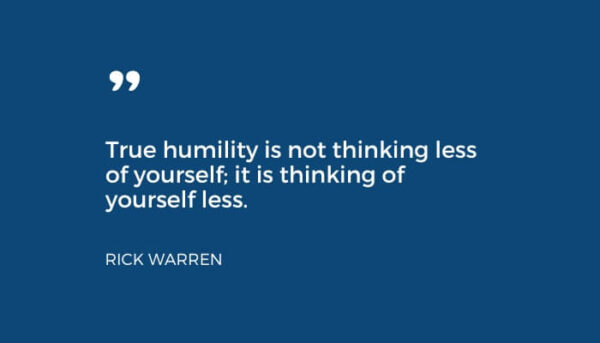“Recognition at work is important to me. How do I make sure I’m not missed?”
“I see other people going to the boss and claiming credit, without mentioning my contribution.”
“I’ve read that I should be assertive in claiming my hard work, but I feel funny and selfish doing that. Then I see others doing it, and they get the rewards. So should I rethink my approach?”
I field these types of questions and concerns often. And I love to discuss this topic—not only because recognition can be important to your ongoing success and motivation, but also because it’s an area where your power-alley attributes (or natural challenge areas) can play a big role.
But we don’t often look at the issue through this important lens. Let’s change that:
Terrible Advice for Gaining Recognition at Work
We’re in a bit of a you deserve it cultural phase at the moment, so if you’ve been seeking advice on how to gain recognition in the workplace, you may have come across tips like this:
- Believe you deserve it, and ask for it
- Don’t be afraid to claim credit
- Advertise yourself
- Brand yourself
- Take the spotlight
This all sounds great for a high Commander. And if that’s you, I’d encourage you to embrace your strengths and do what works based on your attribute profile.
But considering that our list of core human attributes includes 14 strengths that appear most often in professionals—and that Commander is only 1 of those strengths—it seems that the vast majority of us might not be at all comfortable with the list above.
That’s the fatal flaw of the promote-yourself approach: it’s probably out of sync with how more than 90% of us are wired.
Remember this:
It is very risky to try to behave like somebody you are not. The result usually reads as fake and leaves a low-impact impression at best—at worst, a downright negative impression.
A Better Way to Gain Recognition at Work
For those who aren’t comfortable with the above list, I recommend a straightforward behavior that is extraordinarily powerful but seldom used—at least not with this purpose as part of the motivation. Why so rare? Primarily because it’s counterintuitive:
The best way to get credit is to give credit.
What? You get by giving?!
Yep. I see it work all the time. Here’s how:
Why Giving Recognition at Work…Works
Since we are inherently self-focused, human beings tend to prioritize our own recognition. It’s the way the world works, so it’s also what others are accustomed to.
In fact, since humility tends to go hand-in-hand with effective listening, it follows that less humble people talk more. Which means that in life, we spend a disproportionate amount of time listening to people who tend to advertise their own accomplishments.
Outcome: giving credit to others is a rare move. So rare, in fact, that it stands out. A lot. In a very positive way.

An Example of Giving Recognition at Work
Beth, Alex, and Jim are part of a team working on a project. In the past, Beth has watched the other 2 advertise themselves and take credit. After learning the “give credit” tool, she goes for it.
During one work session, she notes that Alex is great at taking risks and experimenting, and that Jim contributes strongly as the organized, detailed team member.
Beth then makes a point of telling the boss how these two positively contribute. And she doesn’t give general compliments; she is specific about the strengths she’s noted, and about how she sees those strengths contributing to positive outcomes.
When the project is over, Alex and Jim each separately make it clear to the boss how great they’ve been, just as they’ve done in the past. Neither one of them gives particular credit to the other or to Beth.
The boss takes note that
- Beth’s compliments were in alignment with how her teammates come across—and with outcomes (i.e., she was genuine).
- Beth is the only one noticing team-member strengths and passing credit others. The boss clearly sees this as a positive leadership trait predictive of future success.
In short, Beth giving credit results in her receiving a positive evaluation.
Let’s take one more minute to look at 2 important subtleties of this example:
The Importance of Honesty
First, Beth needs to be honest about the credit she is giving to Alex and Jim. Without this, she would lose credibility very quickly.
She doesn’t compliment for the sake of looking good. She compliments because her colleagues are genuinely worthy of her praise.
If you have trouble finding positive points in others, here’s one place to start:
The Importance of Specificity
If Beth said, “Alex is really great,” or “Jim is a delight to work with,” her input would likely be seen as inconsequential flattery. But by pointing out specific traits, she shows the honesty of her input—and, as an added bonus, her own insightfulness!
Notice this important feature: in order to be specific, Beth must
- Pay attention to the positive contributions her teammates make
- Take note of these behaviors in order to accurately communicate them
Bonus: at the same time that this note-taking assures accuracy and specificity, it also focuses Beth on the positive behaviors of her associates. That alone has a beneficial impact on the team’s reaction to her—as well as on her experience at work and the team’s success!
*
The next time you find yourself yearning for more recognition at work, try this “get by giving” idea, and watch how it works—and how much better you feel.
Let me know how it goes!




Leave a Reply